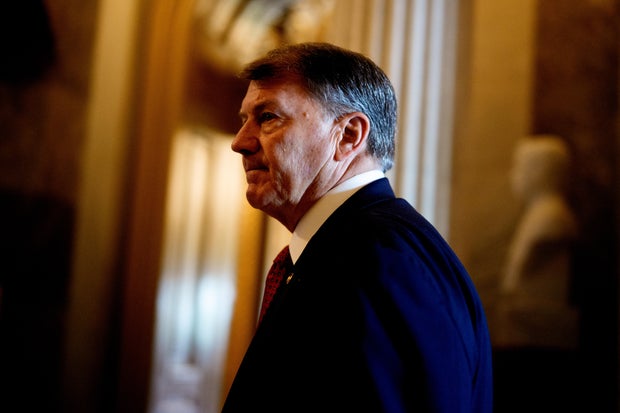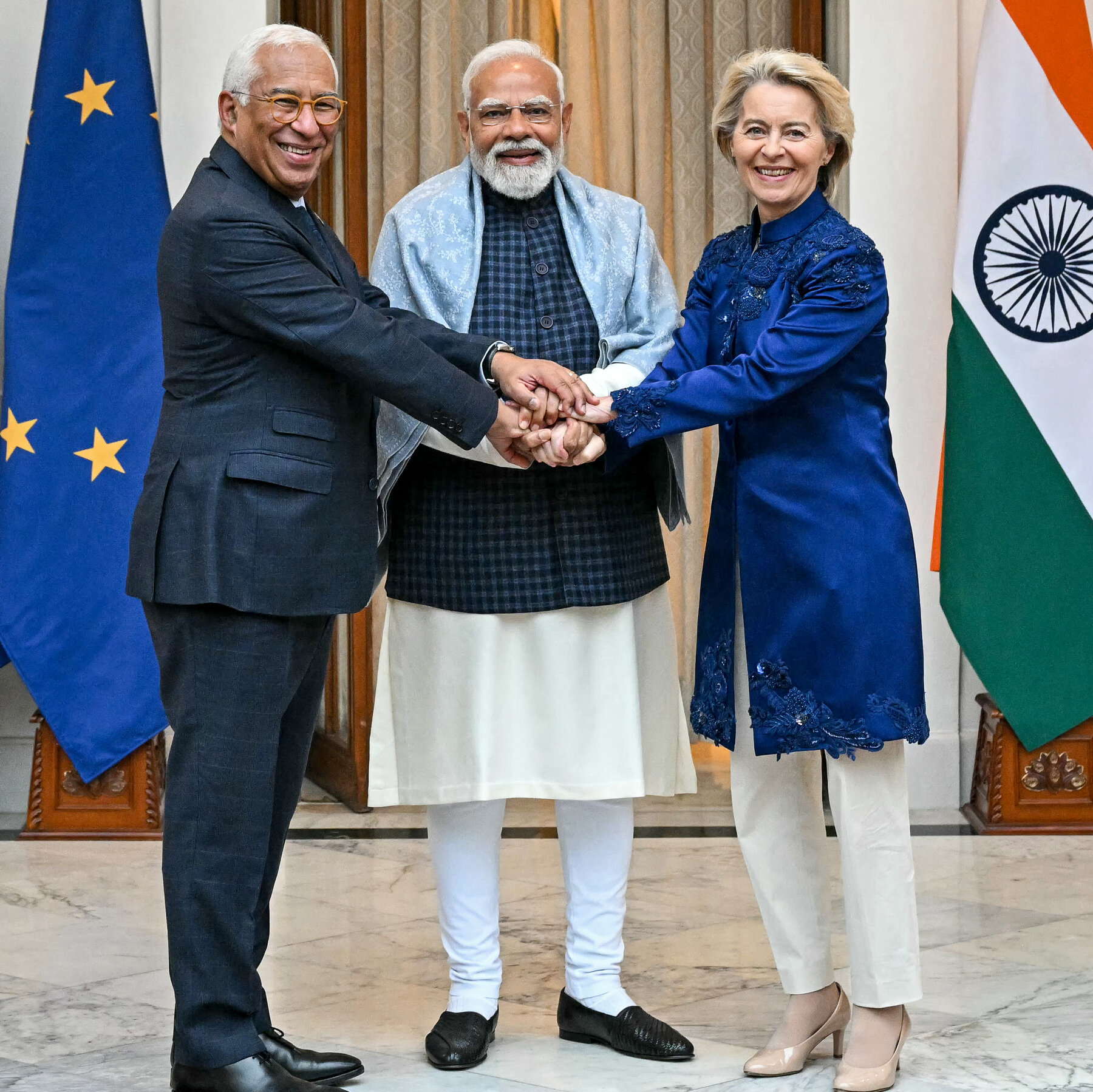
Washington — The Senate is expected to vote next week on a request from the White House to claw back funding for international aid and public broadcasting. But the funding for rural radio and television stations — sometimes an area's sole source for emergency warnings and other news — has sparked concern among some Senate Republicans, especially after the recent devastating flash floods in Texas.
The White House asked lawmakers to rescind $9.4 billion in spending on June 3, starting the clock on a process that gives Congress 45 days to act. The House approved the rescission package last month, and the Senate now faces a July 18 deadline. But a number of Senate Republicans now say they want to see changes to the package.
Sen. Mike Rounds, a South Dakota Republican who sits on the Appropriations Committee, told reporters Wednesday that he's not comfortable with some of the rescission package's provisions, like cuts to public broadcasting, saying, "That's the reason why we're proposing changes."
Along with $8.3 billion in cuts to international assistance programs, the package includes a proposed $1.1 billion in cuts for the Corporation for Public Broadcasting, the private nonprofit that serves as the steward of the funding to NPR and PBS. The White House has targeted the entities, including in a May executive order that instructed the CPB to cease federal funding for PBS and NPR, claiming they have "spread radical, woke propaganda disguised as 'news.'"
PBS CEO Paula Kerger and NPR CEO Katherine Maher defended their organizations' records in an appearance on "Face the Nation with Margaret Brennan" in May, outlining how local stations will see the immediate impacts of cuts to public broadcasting funding.
"The impact of this could really be devastating, particularly in rural communities," Maher said, noting that there are 246 stations throughout the country, and for some Americans, they provide the sole local source of news. Kerger said for stations in small communities, some of which receive 40 or 50% of their funding from the federal government, "it's existential."
Senate Majority Leader John Thune of South Dakota said Wednesday that there would be an amendment process on the rescissions package, forecasting a vote next week. And Rounds outlined to reporters earlier in the day that Senate Republicans have been considering the best way to handle the opposition to some provisions within the rescissions package, saying they plan to resolve the issue through an amendment or "other means."
"There's a specific group of Native American tribes that have a public radio system set up, and really the vast majority of the funding for it comes from one source, and that's within the rescission package," Rounds told reporters earlier this week. "What we're trying to do is to work with [the Office of Management and Budget] to find a path forward where the funding for those radio stations would be left alone."
Rounds noted that the goal is not to eliminate a number of the provisions within the rescissions package, but "specifically to take care of those that were in some of these rural areas," pointing to stations in South Dakota, North Dakota, Montana and Alaska.
"This is their way of getting emergency messages out to people. It's the way in which they communicate in a very rural area," Rounds said. "So for us, it's a matter of, for those specific ones, it's not a lot of funding involved with it, but it's pretty important in those rural areas."
Sen. Steve Daines, a Montana Republican, told reporters that cuts to local radio stations and the impact it could have on Native American tribes is "something we'll take a look at." And GOP Sen. Shelley Moore Capito of West Virginia told CBS News that the impact on rural stations is "one of the considerations" lawmakers are taking into account.
Sen. Lisa Murkowski, an Alaska Republican, defended public broadcasting and its role in her state during a hearing on the rescissions package last month. "I hope you feel the urgency that I'm trying to express on behalf of the people in rural Alaska and I think in many parts of rural America where this is their lifeline," Murkowski told OMB Director Russ Vought.
"This is where they get the updates on [landslides], this is where they get the updates on the wildfires that are coming their way," she said.
GOP Sen. Susan Collins of Maine told reporters Thursday that while she's supportive of "a lot" of what the CPB does, citing the funding for local stations and maintaining the Emergency Alert System, "the problem is NPR, which has a decidedly partisan bent."
Meanwhile, a group of Democrats took to the Senate floor Wednesday to rail against the cuts to public broadcasting within the rescissions package, including Sens. Dick Durbin of Illinois, Ron Wyden of Oregon, Peter Welch of Vermont, Maria Cantwell of Washington, Tammy Baldwin of Wisconsin, Amy Klobuchar of Minnesota, Ben Ray Lujan of New Mexico, Lisa Blunt Rochester of Delaware and Ed Markey of Massachusetts.
Durbin warned that "once these stations are gone, they're gone."
"In times of crisis, that could mean in the extreme a difference between life and death," Durbin said, citing as examples the ability of Alaska radio stations to share information about weather conditions, or emergency alerts to go out during tornado scares in Alabama. "These are critical services, but President Trump doesn't agree."
Wyden cited the Texas flash floods, saying "we saw the devastating impact of underfunded emergency alert systems with the deadly flash flooding in Texas."
"As more details emerge, there's one area that seems to me to be clear: More could and should have been done to bolster the local emergency alert system to help avoid and limit the horrendous tragedies that we have watched nightly for the last few days," Wyden added. "As extreme deadly weather events like this become more and more common, local, state and federal governments need to be investing — not shrinking — systems like public TV and radio."
Sen. Martin Heinrich, a New Mexico Democrat, told CBS News that he's "very concerned" about the cuts, adding that "in big rural western states," many communities are "completely dependent on those rural radio stations for emergency services." Flash floods killed at least three people in New Mexico earlier this week, officials said.
"There's not a backup, there's not competition, and so that's something we're looking very closely at," Heinrich said.
Still, other senators saw things differently.
"Contrary to what happens here in D.C., there's not a lot of people in central Texas who listen to NPR," Sen. John Cornyn, a Texas Republican, told CBS News. "And there are plenty of other alternatives."









-3.png)



